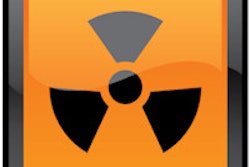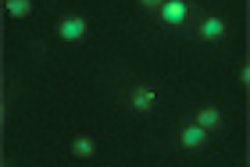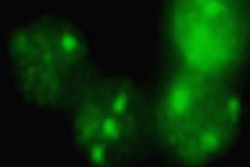Canadian researchers plan to start clinical trials soon of an oral antioxidant cocktail designed to prevent radiation-induced DNA damage from medical imaging scans. The trial follows tests they've already conduct in humans -- more specifically, themselves.
Dr. Kieran Murphy discussed the cocktail at last month's Canadian Association of Radiologists (CAR) annual scientific meeting. The agent is one of at least two products being positioned to ameliorate the effects of low levels of radiation on the body. Proponents of this approach believe that pharmaceuticals and supplements can complement the efforts of those trying to reduce radiation dose by changing equipment settings.
"There's a point where if we keep reducing the radiation dose from imaging we're going to get crappy images, so we have to do something else," Murphy told AuntMinnie.com when describing the rationale behind the supplement, which he and his colleagues first investigated by experimenting on themselves.
Radiation and DNA damage
Radiation causes DNA damage -- which can lead to cancer -- by splitting water molecules in the body into hydrogen and oxygen atoms; these, in turn, can bind to DNA and cause strand breakage. While the body's own repair mechanisms usually immediately fix any DNA breaks that occur, the repair mechanisms aren't foolproof.
In addition, some people's DNA is more vulnerable to damage than others, and some approaches, such as the use of contrast agents, increase the number of DNA breaks. Thus, putting antioxidants into the body prior to imaging could potentially forestall any negative consequences.
Murphy's team started its work by replicating the phenomenon of antioxidants preventing DNA damage from radiation. The investigators measured the amount of DNA breakage when blood either was or was not mixed with antioxidants, including glutathione and ascorbic acid, in vitro prior to irradiation.
"We were able to show that the antioxidants had a protective effect," affirmed Murphy, who is a professor, vice chair, and director of research at the Joint Department of Medical Imaging at the University of Toronto and the University Health Network.
The researchers then tried a uric-acid-based antioxidant cocktail. This was very effective, but while uric acid is a potent antioxidant, it also has deleterious effects on cells and thus is not suitable, he said. They also decided to use an oral route for antioxidant administration because intravenous injection is frequently associated with anaphylactic reactions.
Human testing ... starting with themselves
Next, Murphy and two colleagues sipped an antioxidant cocktail, then drew their blood and irradiated it. The comparison of their blood before and after antioxidant exposure showed that "when we premedicated ourselves, we had fewer breaks in the lymphocyte DNA when exposed to same amount of irradiation. This was very cool -- exciting," he said.
A group from the U.S. and Germany beat the Canadians to the in vitro punch in a paper published online April 16 in Radiology. They irradiated blood at an x-ray dose similar to the dose from a CT scan, 10 mGy, before and after incubating it with the off-the-shelf BioShield oral preparation made for the American army. That reduced radiation-induced DNA breaks by 23%. More information on that paper is available by clicking here.
The group also tested what happened when healthy subjects took BioShield pills and their blood was irradiated. The blood of subjects who ingested the pills 60 minutes before their blood was drawn and irradiated had 58% fewer breaks compared to those who did not take the pills.
Murphy sees the other group's work as proof that there is potential in using supplements and pharmaceuticals to prevent radiation damage.
"This is proof that we're not mad [in using this approach], which is nice," quipped Murphy.
The Toronto team has continued to refine its cocktail and now has a proprietary version, which contains not only glutathione and ascorbic acid but also "many other things," Murphy noted. The group is about to start a randomized, sham-controlled study in 40 people undergoing elective cardiac PET/CT.
"This has to become part of our daily practice. ... I think it can be diffused across the world very cheaply and very efficiently and can change the dynamics of screening," Murphy said. "For example, if we can decrease by 50% someone's radiation-associated risk from a mammogram, we will increase mammography. That's meaningful."



















